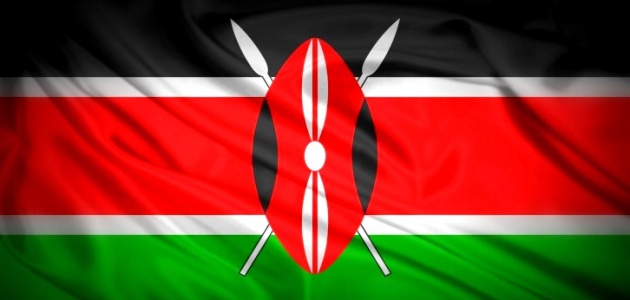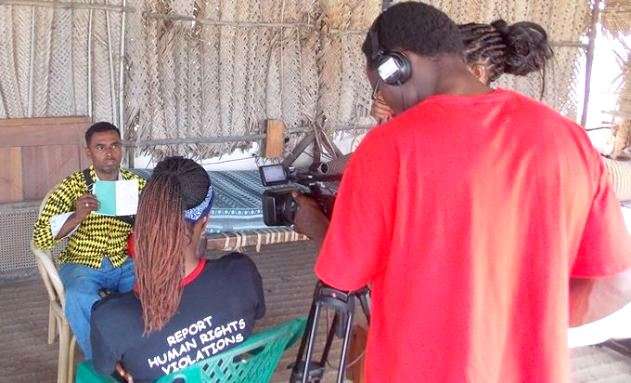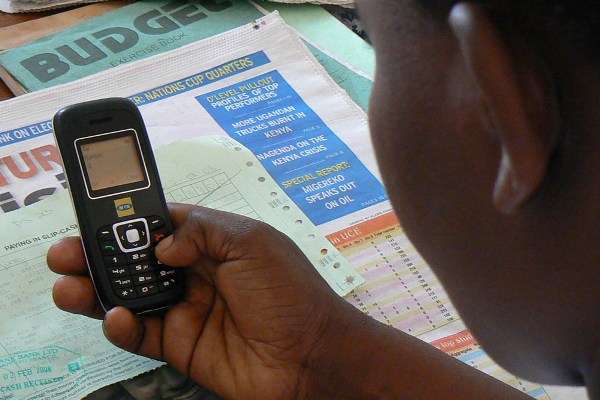By Tomiwa Ilori |
Transparency and accountability in governance are key tenets of participatory democracy. To this end, Sweden was the first country in the world to introduce a right to information (RTI) law back in 1766. Finland followed in 1919, and to-date, over 100 countries across the world have enacted laws that give citizens the right to access information in the hands of government.
In Africa, 21 countries have passed Freedom of Information (FOI) laws, while 16 have proposed laws. Most countries have constitutional provisions for the right to information, pursuant to obligations under various international and regional instruments. These include the Universal Declaration of Human Rights, the International Covenant on Civil and Political Rights (ICCPR), the African Charter on Human and Peoples’ Rights and the Declaration of Principles on Freedom of Expression. A model law on access to information for Africa was prepared by the African Commission to serve as a template and encourage more countries to adopt legislation embodying international, regional, and sub-regional standards.
Meanwhile, there have been regional efforts to ensure citizens’ realisation of the right of access to information. Civil society organisations together with the African Union and African Commission on Human and Peoples’ Rights adopted the African Platform on Access to Information Declaration in 2011. There was also the Midrand Declaration on Press Freedom in Africa in 2013 which recommended that African countries take up open governance culture through access to information laws. However, the reality for most countries is that information requests are routinely refused or ignored, with citizens sometimes turning to the courts in order to access information in the hands of government.
Nigeria passed its freedom of information law in 2011. Under the Act, public institutions and “private companies utilising public funds, providing public services or performing public functions” are mandated to make public records and information freely available, guarantee citizens’ right to be duly informed of facts relevant to them and maintain records of all activities, operations and businesses. Without specifying whether its calendar or working days, the law provides for a response time to information requests of seven days. This may be extended if the request involves a large number of records or consultations have to be made. Proactive disclosure is also provided for under the law. Information exempt from disclosure includes that related to international relations, defence, law enforcement and investigations. Wrongful denial of information is an offence under the Act, punishable with a fine of Nigerian Naira 500, 000 (US$1,400).
The Attorney General of Nigeria is mandated to collate information on implementation of the Act based on information from the various government entities. According to statistics from the official FOI website, the number of requests made by citizens is on the decline. In 2013, 1,183 requests were recorded, of which 48 were denied. The following year, requests dropped by three quarters to 314, 35 of which were denied. Requests further dropped in 2015 to 217, of which 36 were unsuccessful. Figures for subsequent years are unavailable but denial of access to information remains prevalent.
In a May 2018 case, a human rights lawyer was denied information on fuel imports by the Nigerian National Petroleum Corporation (NNPC). The corporation argued that it was established “by law to manage the commercial interests of Nigeria in the oil and gas sector of the economy and conduct trade therein”, and was therefore not a public institution within the meaning of the Freedom of Information Act.
The following month, a Nigerian court denied an access to information request for details of the President Muhammadu Buhari’s medical bills. The request was filed to the Central Bank of Nigeria by the Advocacy for Societal Rights Advancement and Development Initiative (ASRADI).
Some cases of denial have compelled requesters to seek orders for disclosure. For example, the Nigerian Contract Monitoring Coalition initiated a court case and succeeded in compelling the Power Holding Company of Nigeria, the Electricity Distribution Company Plc and the Nigerian National Petroleum Corporation to release information, which had initially been denied.
Courts have also set precedent in proactive disclosure by public institutions. In February 2014, a Federal High Court ordered the National Assembly to make its financial records accessible to members of the public through the provisions of the Freedom of Information Act of 2011. This galvanised the #OpenNASS advocacy campaign. More recently, the Court of Appeal in the Akure Division, Ondo State, ruled that the Act is applicable across federal states. This has put to rest the debate as to whether States in Nigeria need to comply with the provisions of the Act.
The situation in Nigeria mirrors that in Uganda whose access of information law was passed in 2005 but challenges still persist. The law has remained largely unimplemented because many public institutions have a culture of secrecy –they rarely release information pro-actively and routinely ignore citizens’ requests for information. Where government information or data is available, it is often not in reusable formats. Likewise, most citizens are not empowered to make information requests due to ignorance of the law, thus undermining participation in civic engagements and governance processes.
Furthermore, implementation of the access to information law in Uganda is hindered by limitations to the bodies or organs to which information requests can be made – the law excludes private entities and civil society. Like Nigeria, information exempt from access in Uganda includes that related to privacy of an individual, defense, security, international affairs, legal proceedings and law enforcement. The response time for a request is within 21 days of receipt. Wrongful denial of requests is punishable under the Act with a fine of Uganda Shillings 4,800,000 (US$1,300) or imprisonment for three years or both.
User statistics from Uganda’s Ask Your Government portal show that since its launch in June 2014 to-date, 2,647 requests have been made to 106 agencies. Out of these, 231 are indicated as successful and 40 unsuccessful. With over 2,300 requests awaiting responses beyond the 21 days limit, the majority can be regarded as refusals pursuant to section 18 of the Access to Information Act (ATIA), 2005. The section states: “where an information officer fails to give the decision on a request for access to the person concerned within the period contemplated under section 16, the information officer is, for the purposes of this Act, regarded as having refused the request”.
Some Ugandan citizens have also opted to seek redress from the courts for denied requests. In 2009, two Ugandan journalists sued the government over failure by the Solicitor General to grant access to information regarding oil production, prospecting and exploitation agreements. The case was dismissed on the basis that a clause in those agreements provided for confidentiality.
In a landmark case, on February 2015, a Chief Magistrate’s Court in Kampala ruled that the reasons for which information is requested or the belief about how it will be used “are irrelevant considerations” in determining government’s approval or denial of a request. The ruling came after the Hub for Investigative Media was denied access to information related to activities of the National Forestry Authority funded by the World Bank between 2009 and 2011.
Implementation of access to information laws in Nigeria and Uganda shows that there is a lot to be done with respect to giving life to the existing legislation. Some of the ways through which the policy and practice gaps can be overcome is through records digitisation in all public institutions. This will not only help to save time in operations, it will also help with efficient record-keeping, search, retrieval and disclosure. Equally, translating freedom of information laws into local languages will help raise awareness on the rights of citizens and the obligations of duty bearers which will go a long way in realising the objectives of the FOI laws. Implementation of the laws can also be fast-tracked through compliance reporting to parliament by state institutions.
Ultimately, the experiences of Nigeria and Uganda show that courts are proving to be a means of recourse, and if effectively utilised, have the potential to set national and even regional precedent to make it easier for citizens to exercise the right to information.
Study Reveals that a Culture of Secrecy Among Public Officials Hinders Media Work in Tanzania
By MISA Tanzania Correspondent |
A prevailing culture of secrecy among public officials in Tanzania at both central and local government levels is hindering the work of journalists, according to findings by a recent study. This is affecting access to information necessary for media reporting towards increased civic participation, transparency and accountability in governance.
The study which was conducted by the Media Institute of Southern Africa (MISA) Tanzania Chapter in partnership with the Collaboration on International ICT Policy for East and Southern Africa (CIPESA) assessed the responsiveness of local government authorities (LGAs) and central government offices in Tanzania to citizens’ information requests.
The study found widespread laxity among officials in processing information requests, with many claiming to have misplaced or lost filed requests. “If you received someone’s documents, why would you say you can’t see them just a week later?” wondered Haika Kimaro, a newspaper correspondent in Mtwara town in the south-east of Tanzania. In the port town of Kigoma, Rhoda Ezekiel, a correspondent with Uhuru Newspaper, recounted how the secretary of the Ujiji Municipal Council once claimed to have misplaced her information request when she followed up on a query she had submitted.
Radio journalist George Binagi shared a similar experience from the town of Mwanza: “I submitted my questions in writing to the Regional Commissioner’s Office. I went back 10 days later and did not get the answers. They looked for my letter and [claimed they] never saw it.”
But it is not only the media affected by limited access to public information. Researchers are affected too. During the study, Jacqueline Jones, a mass communication graduate and intern at MISA Tanzania, went to the Dar es Salaam Regional Commissioner’s office posing as a student researcher. She requested for information pertaining to the office’s functions, ongoing projects, income and expenditure. However, she was turned away for lack of an introduction letter from a university, with officials claiming that work procedures do not allow them to disclose information without such a letter.
“Their customer service is awful and the people at the registry department were quite harsh and rude. One of them actually shouted at me for insisting on getting my answers in a written form,” said Jones.
She submitted a similar request to the Dar es Salaam City Council, which, according to the city’s Information Officer needed approval by at least four different Heads of Sections. The Information Officer provided her with the requested information upon receipt of the approvals.
Alternative platforms for accessing information offered their own challenges. According to Zulfa Musa, a Mwananchi Newspaper correspondent in Arusha, administrative assistants manage the City Council offices’ telephone numbers and getting in touch with the Director or his Secretary to request for information required one to have these officials’ personal phone numbers. It was difficult to make information requests as the administrators were reluctant to provide the personal contact information of the Director or his secretary.
The frustrations faced by the journalists who took part in the study indicates that it is likely that citizens face similar or worse challenges.
It is widely recognised that access to quality and timely information for citizens is crucial in facilitating informed dialogue, monitoring and evaluation of development issues at the local level, thereby accountable governance and improved public services delivery.
Gasirigwa Sengiyumwa, the National Director for MISA Tanzania, stated that whereas an Access to Information Act was passed in 2016, “it appears that both public servants and the general public remain unaware of this Law.” He added: “There is a need for sensitisation about the law through training workshops for both parties [public officials and citizens] to ensure that the rights and responsibilities provided for under the law are realised.”
The study was conducted as part of the ICT4Democracy in East Africa initiative’s objective to document and publicise the utility and effectives of Information and Communication Technologies (ICT) for government-citizen interaction, proactive information disclosure, and responsiveness to information requests, for the realisation of the right of access to information.
Seven out of Tanzania’s 28 regions were covered in the study, with a total of 28 information requests filed to 14 institutions during March and April 2017. The written requests were emailed as well as hand-delivered to the institutions. Follow ups on approval or denial of requests was conducted through phone calls and physical visits.
Read the full study at here.
Thanks to ICT, government secrets get ever fewer
By John Walubengo |
ICT IN POLITICS
Using Technology to Advance Human Rights in Kenya
By Catherine Kamatu |
Joseph Kitaka, a resident of Yatta in Machakos County, Kenya, has always had an interest in defending human rights. His community is faced with numerous challenges, including gender-based violence, police brutality and many other human rights violations. Mr. Kitaka had little hope of utilising Information and Communication Technology (ICT) to advance his ambition in bettering his community, until he was elected the chairman of Yatta Paralegal Network, a local Human Rights Network (HURINET).
Today, Yatta, is among 15 HURINETs in Kenya that are being supported by the Kenya Human Rights Commission (KHRC) to strengthen democratisation by widening civil society use of ICT to advance political accountability, freedom of expression and respect for human rights. The initiative is part of the ICT4Democracy in East Africa Network, a regional coalition of civil society organisations coordinated by the Collaboration on International ICT Policy for East and Southern Africa (CIPESA).
The network maintains various ICT platforms and undertakes activities including research, capacity building, mentoring, advocacy and civic engagement toward strengthening democracy. The network’s partners use digital technologies to hold leaders accountable to citizens, fight corruption, enhance communication and the right to freedom of expression, as well as the right to seek, receive and impart information and respect for human rights.
In Kenya, KHRC maintains an SMS short code and crowd mapping platform which enable citizen reporting of human rights violations, and building a vibrant social movement of citizens who monitor government performance toward a society free of human rights violations.
Through KHRC’s project, 10 HURINETs have received computers, modems, generators and digital cameras to support their work. Mr. Kitaka received a modem, a computer and a digital camera to enable the smooth operations of his network. He asserts that the equipment greatly eased information sharing among the networks and other human rights defenders.
“Three years ago, sharing information was a challenge. It took very long for human rights defenders to share reports, it was also very expensive since we could only access ICT equipment in cyber cafes at a cost. With the equipment given to us by KHRC, everything is moving on well,” he said.

Earlier in 2014, KHRC conducted two community outreaches in the Kibera and Kangemi informal settlements in the capital of Kenya where active audiences of 109 and 138 respectively were trained in the use of ICT platforms for promoting human rights and good governance. These engagements enabled hundreds of ordinary citizens to use web tools (such as SMS, Facebook, HakiReport, HakiZetu) to report on governance processes.
Kenya has high rates of access to digital technology, with mobile access rates at 80% and internet access rates at 57%. However, most citizens do not have the skills to use simple technology tools in pursuance of good governance at a time the Kenyan government is making laws and regulations that limit freedom of expression.
In a bid to enhance the quality of the content generated by the human rights networks, KHRC further trained human rights defenders on communications skills in February 2015. The training focused on news writing, multimedia use, interview skills, social media and use of the KHRC e-library as a research tool.
The training was attended by 15 local human rights workers, who will collectively contribute to the newsletter Mizizi ya Haki (The Roots of Justice), which focuses on activities of human rights networks. “From the skills obtained from the communications training facilitated by KHRC, I have managed to train other human rights defenders on how to file good reports,” added Mr. Kitaka.
The training evaluation indicated an overall change in the knowledge, skills and attitudes of all beneficiaries. Social media and article writing were indicated as the most useful training sessions toward the beneficiaries’ more effective human rights work.
However, further training needs were also identified, including digital security, media laws and multi-media content generation. Participants also identified a need for training in proposal writing and resources mobilisation as well as in paralegal work.
Read the full evaluation report here http://bit.ly/1Pu1w6h
The work of KHRC and the ICT4Democracy Network is supported by Swedish International Development Cooperation Agency (Sida).
Promoting inclusive use of ICT in monitoring service delivery in Uganda
By Lillian Nalwoga |
For true democracy to flourish there is need for government transparency, greater access to public information, and inclusion of citizens’ voices in decision-making processes. The use of Information and Communication Technologies (ICT) can aid in increasing awareness and empowering citizens to meaningfully participate in governance processes such as monitoring public services delivery.
The Collaboration on International ICT Policy in East and Southern Africa (CIPESA) has since 2011 implemented the iParticipate Uganda project, which leverages ICT to catalyse civic participation and democracy monitoring in Uganda. While working with grassroots based partners, CIPESA has offered capacity building sessions, and created awareness on how Ugandan citizens can effectively use different ICT tools for social accountability, including monitoring and demanding quality public services.
In 2014, CIPESA worked with the Northern Uganda Media Club (NUMEC) to document service delivery failures as a result of donor aid cuts to the Peace, Recovery and Development Plan (PRDP). The PRDP was launched in 2007 by the government of Uganda in partnership with development partners to revitalise the economy and promote peace-building and reconciliation in post-conflict northern Uganda. However, implementation has faced challenges of corruption and a lack of transparency in its methods of work.

The CIPESA-NUMEC work thus involved promoting dialogue between community members and duty bearers through community debates, radio talk shows and social media on how to improve service delivery for people living in post-conflict communities. Through these engagements, leaders have recognised the need to promote awareness of government programmes among the local communities for better monitoringof service delivery.
For instance, in one of the community debates organised by NUMEC, David Latigo Odongo, the Local Council Chairman of Acet village, Gulu district, acknowledged that lack of sensitisation hampers beneficiaries from monitoring government implemented projects. “They [citizens] do not know who will monitor and take care of PRDP projects, that is why when projects like water boreholes are constructed in the area, people look at it as freebies from either the government or NGOs,” he said.
Further, following the production of a documentary on poor service delivery, Martin Mapenduzi, the Gulu district Chairperson, was prompted to make follow-up on some stalled projects.

Similarly, in western Uganda where CIPESA is working with the eSociety Resource Centre located in Kasese district, another leader acknowledgenes to reach them. eources to health centers were located in semi-urban areas and the journalists lacked enough reseources toed the importance of promoting access to information as a means of enhancing citizens’ monitoring of public service delivery. “Meaningful participation in democratic processes requires informed participants hence the need for increased access to information,” observed John Thawite, the District Information Officer during the e-governance training for local leaders in the district.
This training was aimed at giving district officials skills to update the district website, elibrary and participate in the online district discussion group and Facebook discussions. As a result of this training, and the provision of free ICT services, the district online platforms have been more active and are updated regularly.
The centre serves as a community facility hosted by the Kasese district local government. CIPESA has supported it through the provision of computer equipment, internet subscription and facilitation for the ICT training officer.

At the Busoga Open Source Development Initiative (BROSDI) centre in Mayuge district in eastern Uganda, local communities are being supported by CIPESA in using ICT to monitor education service delivery. This has included training in the use of ICT for civic engagement, access to information and service delivery monitoring. Beneficiaries from one of the training sessions went on to create a project blog to enable users report on different service delivery issues in the district.
In 2014, more than 200 community members benefited from the trainings conducted at our partner centres.
CIPESA also conducted participatory research to document citizens’ knowledge, perceptions and attitudes towards use of ICT tools in monitoring service delivery. Participants in the research acknowledged the need to empower leaders in the use of ICT to respond to citizens’ demands. “Social media will be great when a new breed of users, that is people in leadership, start using it for civic engagement and governance monitoring,” observed a participant in a focus group discussion on citizens’ motivations for using ICT in governance processes.
These grassroots-based engagements, as well as the findings of research exercises on citizens’ and leaders’ use of ICT, access to information and service delivery monitoring will further inform CIPESA’s efforts to close the gap in the awareness and use of technology for enabling democratic processes.




